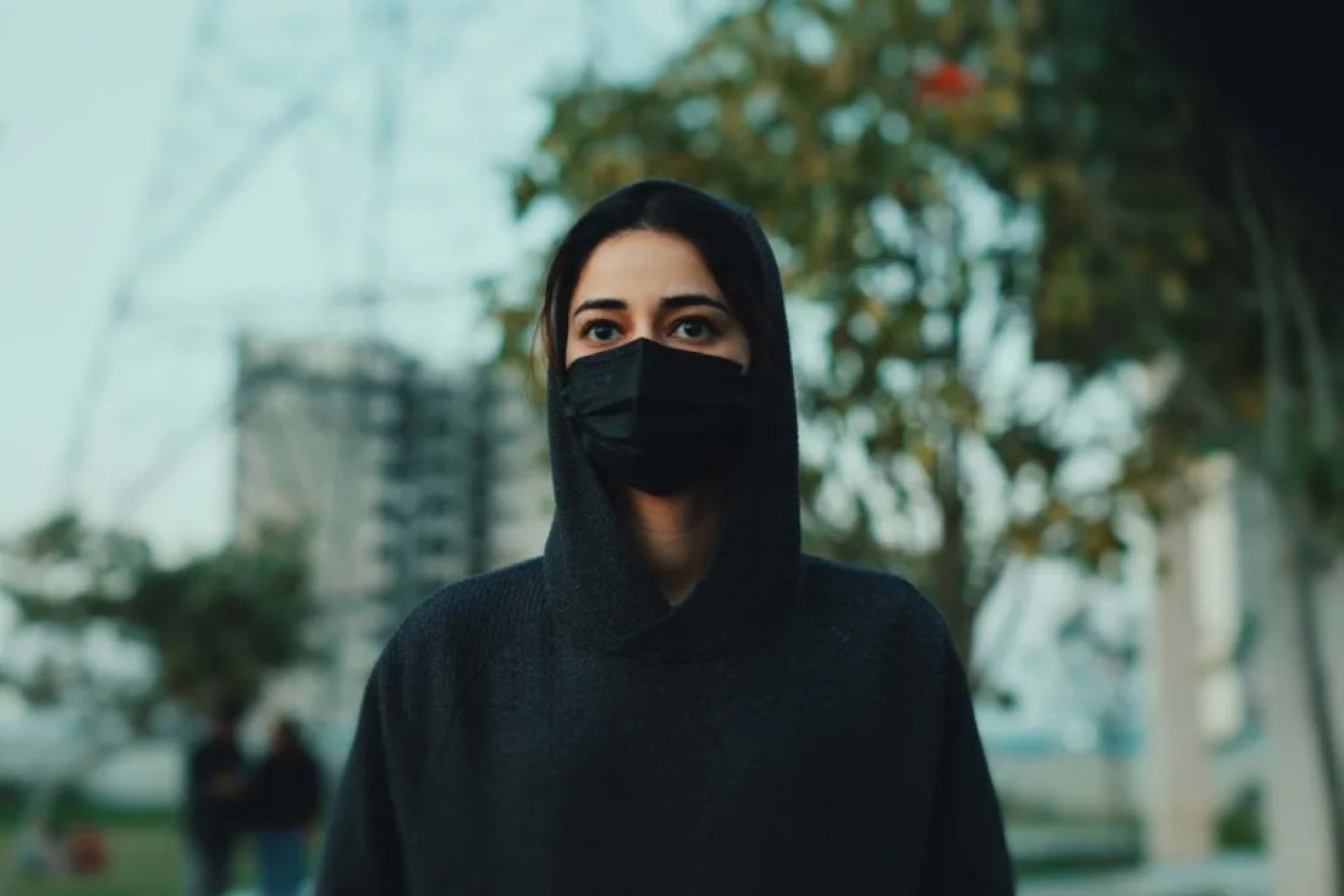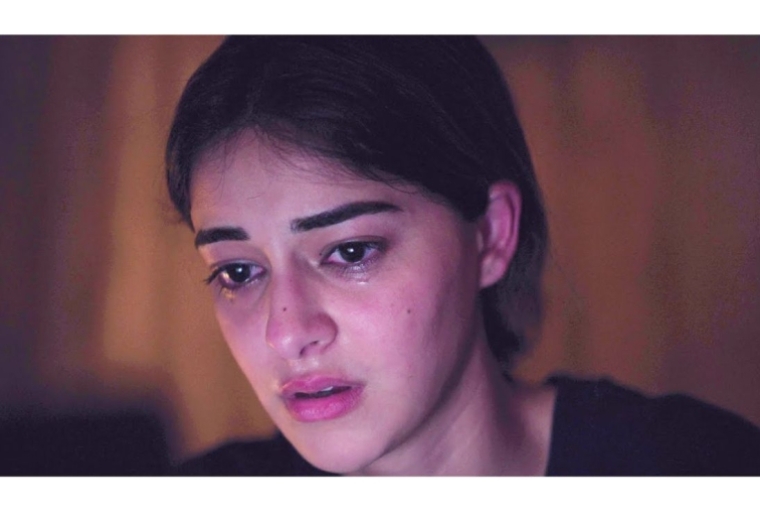

In the ever-evolving landscape of cinema, Vikramaditya Motwane stands out as a visionary storyteller, unafraid to tackle complex themes through innovative formats. His latest project, CTRL, a screenlife film, dives deep into the nuanced relationship between technology, loneliness, and identity, all while exploring the implications of artificial intelligence. In this interview, Motwane shares his fascination with the screenlife format, inspired by films like Searching, and how the pandemic prompted a deeper exploration of our dependence on technology. As he discusses the intricacies of his narrative—centered around a woman navigating her digital existence—he reflects on the broader questions surrounding our online lives, the impact of big tech, and the pervasive loneliness that often accompanies our hyper-connected world.
What specifically attracted you to the screen life format and the theme of AI?
I love the screen life format and films like Searching. The idea of making a film entirely on a laptop screen, allowing a deep dive into someone's life, is very voyeuristic and fascinating. When the opportunity arose to create a screenlife film with Avinash Sampath, it was different time. Since it was 2020 and we were in the middle of the pandemic. At that time, AI wasn't a hot topic; it felt more like a borderline futuristic techno-thriller about a woman and her relationship with AI. Initially, we imagined a scenario where a company had developed software that could connect with her. In the first draft, we included the idea that there was a human behind the AI—a group of guys in a basement, one of whom becomes obsessed with her. However, as we continued developing the story, we struggled to find a proper conclusion for the film's third act. The justification for keeping it in a screen life format began to fade.
More than the AI discussion, I wanted to focus on other things. AI is everywhere now—there are like Meta’s chatbots and others that have been around for a while—I felt the real question was about our dependence on technology, social media, and our devices. This presented an opportunity to discuss that dependence and the toxicity of our relationship with technology. We know it’s unhealthy to be constantly on our devices, yet we often find ourselves reverting to our phones the moment we have free time. This creates a symbiotic relationship that is hard to break. I wanted to emphasize this theme towards the end of the film rather than solely focusing on AI. There are layers to the story, including commentary on big tech, corporations, capitalism, and surveillance, as well as how the media shapes narratives. But for me, the core issue was loneliness. In Nella's case, she chooses to return to the very thing that disrupted her life because the moments she shared with Alan were genuine connections that is beyond the mundane stuff.
When something so tragic occurs—like her time in jail—why does she choose to return to AI? Why does loneliness become such an overpowering emotion?
The relationship we have with our devices is quite strange, and it’s fascinating how she feels compelled to return even after everything that’s happened to her. It’s like this: when you’re in the mood to listen to music, you reach for your phone; if you want to talk to someone, you go to your phone; if you want to look at pictures or check the news, you turn to your phone. It has become our go-to.
I don’t think we’re discussing the detrimental effects of our devices and social media seriously enough. There’s a significant tragedy in the fact that she feels the need to return to that device and software because, for her, it feels more real than anything else in her life—more than her friendships or other connections. For someone who has lived much of their life online, the distinction between real life and online life becomes blurred. Interestingly, some viewers reacted to the film’s switch to traditional motion picture at the end. Even though that’s technically reality—showing the bonds that exist outside the screen—many felt it seemed staged. Nella’s reality was her screen; that was her existence. This is why she chooses to return to that world. There’s something tragic and dark about this choice, which I find both sad and somewhat scary.
Let’s talk about the writing process. You have pop-culture elements like Yashraj Mukhote and comedians with their memes, and Nella’s dramatic comeback on social media, all converging into a cyber thriller. What was the development process for these elements?
It was a gradual process. The first step was defining the story. Initially, we considered a general narrative about a girl, but then we shifted to making her an influencer. This choice was important; it allowed us to delve into influencer culture—also highlighting the motivations behind her actions. Nella’s desire to reclaim her livelihood, her followers, and her identity added depth to her character and made her struggles relatable.
The reality of online life is that people often engage in hate-watching, expressing more negativity than positivity. Hate can be a powerful emotion—sometimes stronger than love—because it’s easier to express. This became a crucial aspect of Nella’s journey, particularly as a woman in the public eye. Influencers often face disproportionate criticism, which reflects broader societal attitudes. It felt fitting to explore this dynamic through her character.
Incorporating pop culture references, like Yashraj Mukharte and Tanmay Bhatt, was essential. These figures have become integral to our cultural landscape, shaping discussions around identity and influence. Five or ten years ago, they were less prominent, but now they resonate with audiences.
A significant turning point in the writing process was bringing an empathetic voice on board. After Avinash and I completed the screenplay, we sought someone who truly understood the influencer experience and that was Sumukhi Suresh, who was an actual influencer with the depth of understanding of it all feeds into us. We wanted to avoid the perspective of two men in their forties writing about a 25-year-old woman. Collaborating with an influencer allowed us to authentically capture the nuances of that world—how they communicate, the kinds of posts they create, and their day-to-day realities. This insight added a rich layer of authenticity to the dialogue and overall narrative. As we developed the story, we also found ourselves continuously refining the ending.
Did you think about the impact of the film on the viewers or what they would take away from it?
I don't think there's a straightforward takeaway. The greatest satisfaction for me is when people are left in silence at the end of the film. I've seen enough screenings where no one talks for 10 minutes, and I think, that’s good—a movie made you do that. I just want reflect on your choices and consider what you should or shouldn't be doing online. It’s not just about what we know; we already understand that there's no such thing as a previous version anymore. Some of us are okay with that, and some are not. As long as we are aware of it, that’s what matters.
If there's anything to take away, it’s the need to understand, from an AI and data surveillance perspective, what’s really happening. Are we really in control of anything anymore when it comes to our online lives—especially in the context of big tech, corporations, and capitalism? What are we truly in control of? What voice do we really have? This is a subliminal message. The rise of AI is present, but I wasn’t making a definitive statement on that. For me, the key takeaway is about our relationship with our devices and how dependent we are on them. We need to consider how much we’re willing to step away from real life for our online existence. Maybe this is just the way of the world, and perhaps we’re the ones still thinking, “Oh, walk on the green grass and look at the blue sky.” In reality, all of that exists in the online world, and maybe we should just embrace it. It sounds bleak, but perhaps for some, that is the reality.

Regarding Nella, we see her altering her digital reality—like removing Joe from all her pictures. How do you think it meddles with her perception of what’s real or what’s not?
For me, that is the big question. What is reality? I believe Nella's reality is her screen. That is her life; she's always there, always posting. So when Joe asks her if she came to surprise him for the likes or if she genuinely came to surprise him, it raises an important question. Did she do it for the likes? I don’t even know the answer to that. When everything is about validation and the dopamine hit that comes from it, that can weirdly become your reality.
It’s also interesting that we never truly know Nella's intentions. Did she do it for the likes? We don’t actually know, and that ambiguity was intentional. At one point, she says, being online is her only job. This is her life; she has lived it online since she was 18. She doesn’t know any better, and that is a reality for many today. Once you start earning your living online, seeking validation online, and showcasing your life online constantly, then what is your reality? That’s the question. But I didn’t want to take a judgmental stance. I don’t want to be a judge or jury on that. Yes, some may think she’s foolish, and there are certainly people online who act foolishly. That’s just the reality of where we are, but I’m not judging Nella at all. She’s doing what she has to because of her circumstances.

The film touches upon how we perceive truth and how journalists seeking the truth are often threatened. How do you think AI will challenge these aspects?
In my mind, the use and future of AI depend entirely on who is running it. AI cannot be independent of the voices that are fed into it. It will always be influenced by politics and capitalism, which will determine what AI does. Every corporation and government wants to create monocultures, and AI will be another tool used to further that goal.
This presents a rather bleak outlook on AI. Yes, AI is useful in many areas, including technology, medicine, and even the film industry. There are numerous benefits to integrating AI into our lives. But the crucial question remains: who is in charge? As for your question about how AI works with journalists and impacts journalism—there are already AI newsreaders in the industry. However, again, the question arises: who is feeding the information? The bias in AI models cannot be overlooked. AI engines learn from the data available to them, but is that data free of bias or prejudice? The sources of this information shape the biases present in the AI. It's important to note that not all AI models will be free of prejudice or bias. Much of that bias is introduced by the corporations and governments that control the data. One interesting example, though not directly related to journalism, is a software called Replika. This software allows users to create a digital companion that they can talk to about various topics, including personal issues.
When Replika started, users could discuss anything with their replicas, including sexual and relationship problems, and receive helpful advice. However, when a parent in Italy became concerned about their child talking to an AI about such topics, politicians intervened, threatening to ban Replika if it didn’t change its approach. As a result, users found that their replicas suddenly behaved differently. This small example illustrates the core issue: what information are we feeding into AI models? The danger lies in the fact that AI will not be free of bias or prejudice, especially when it is subject to top-down direction from those in power.
Words Paridhi Badgotri
Date 17.10.2024